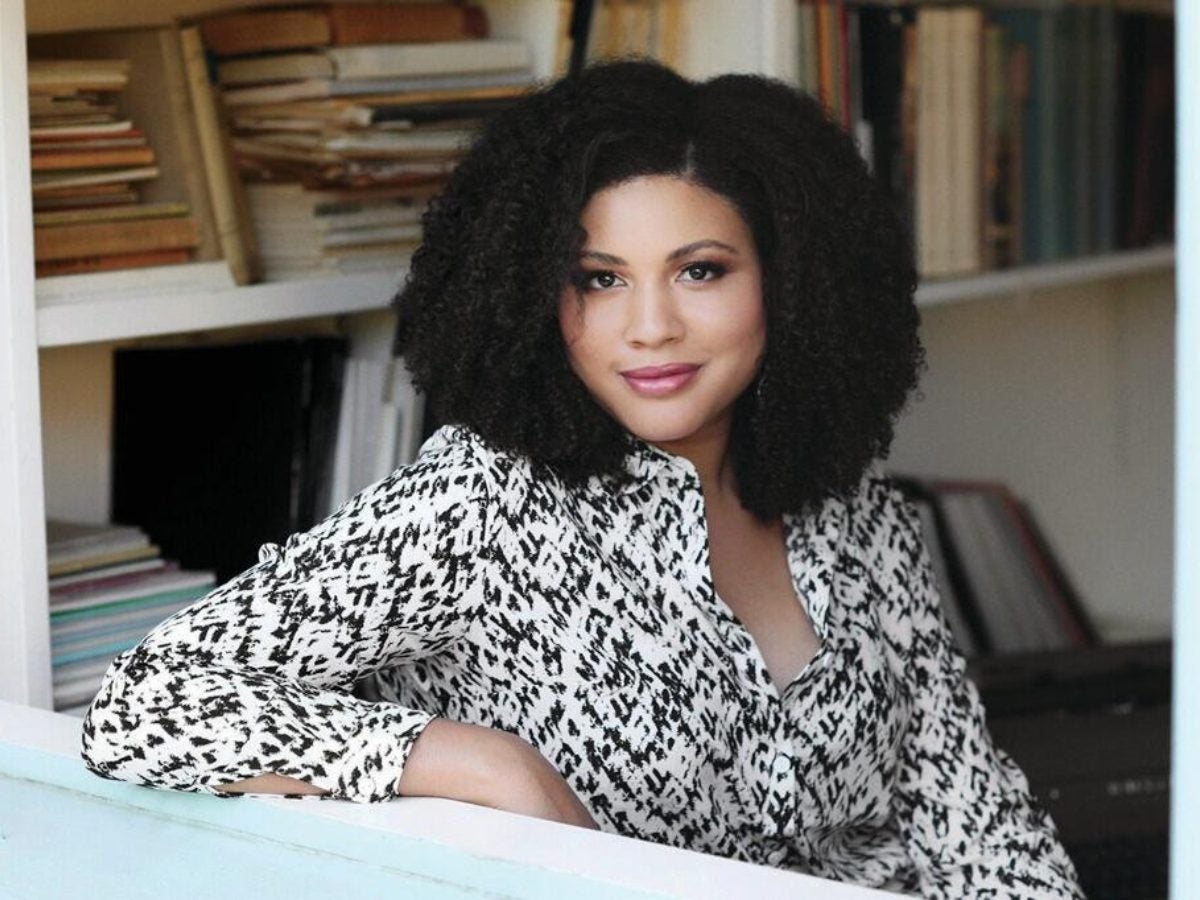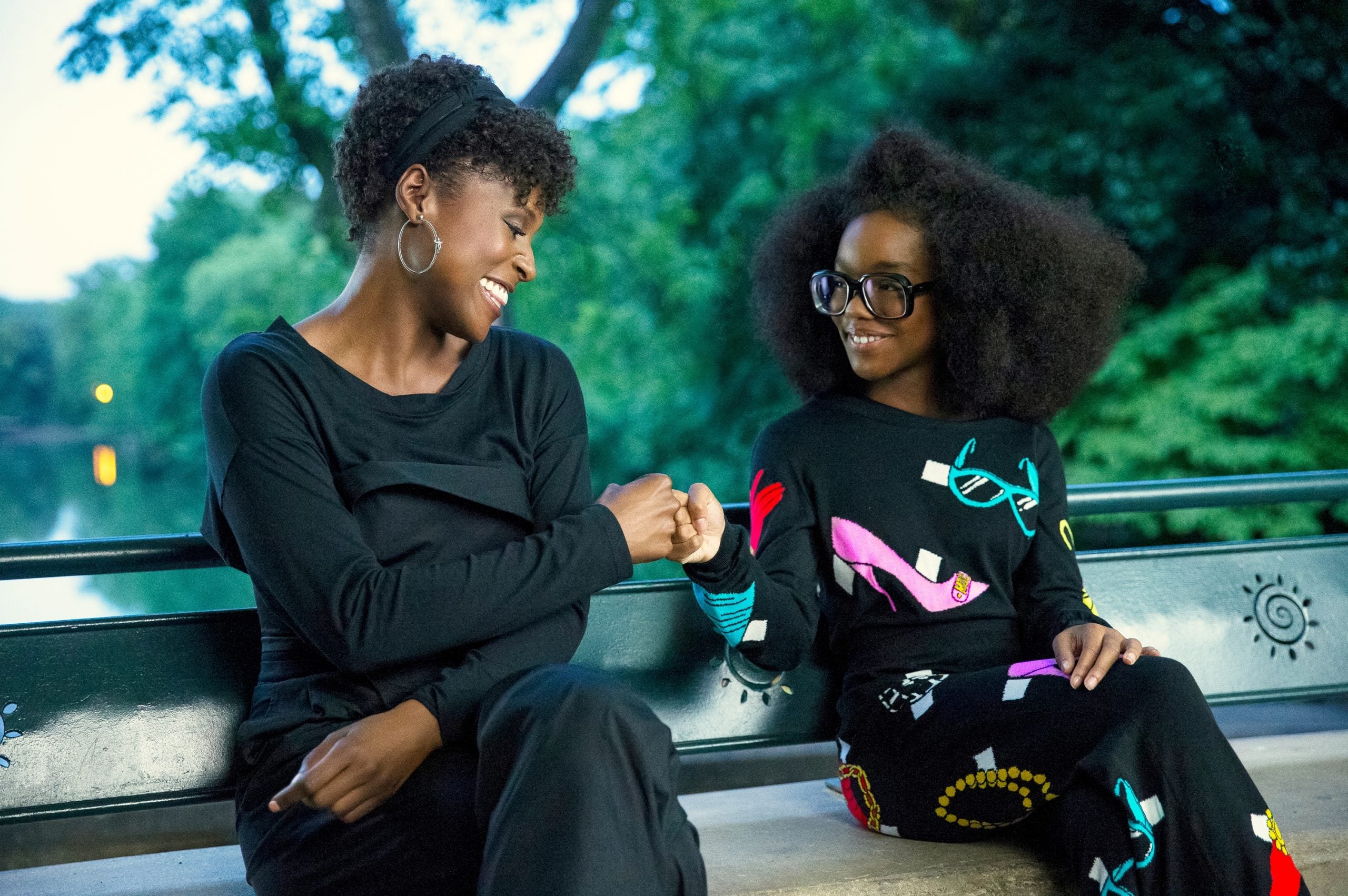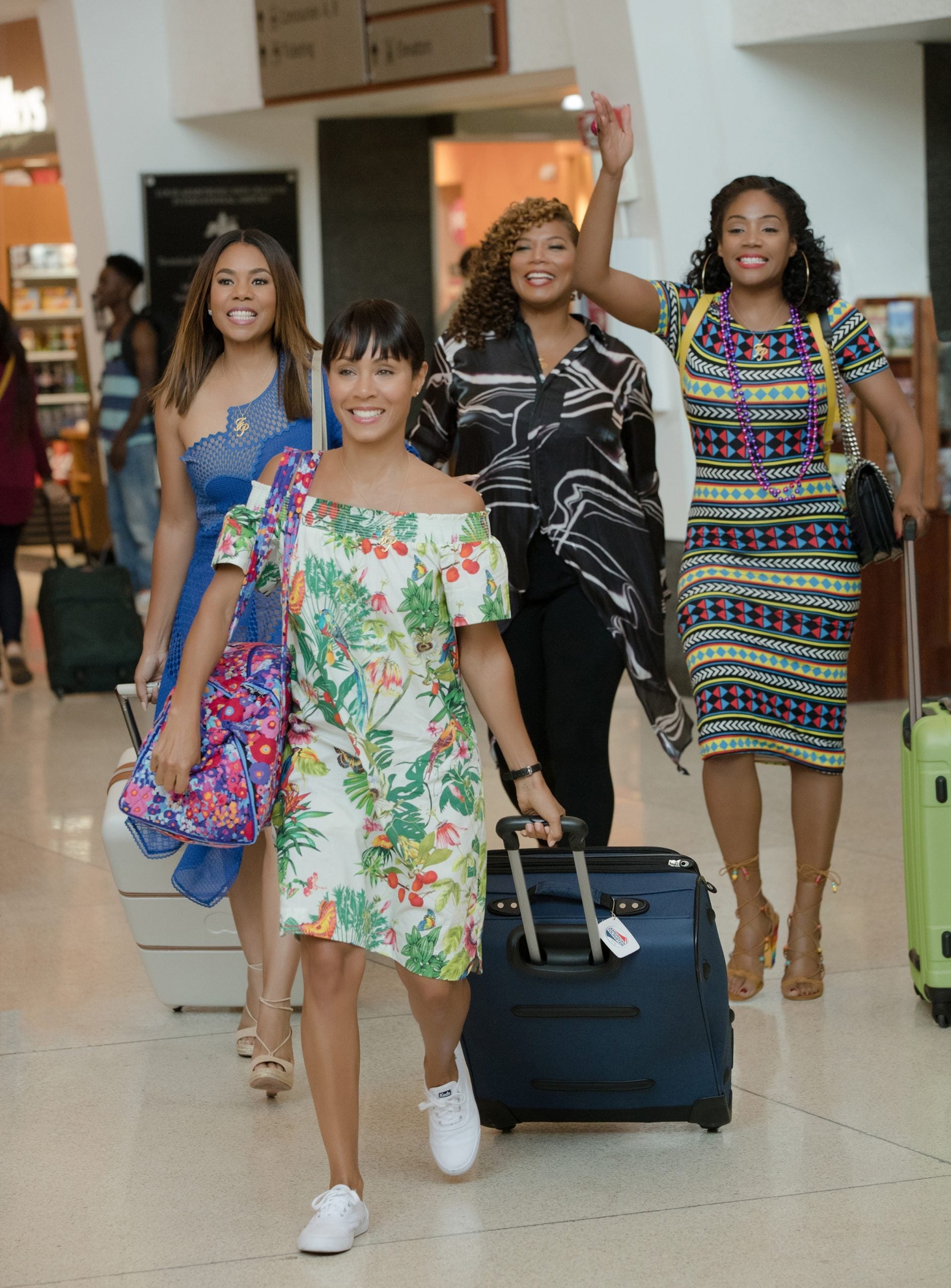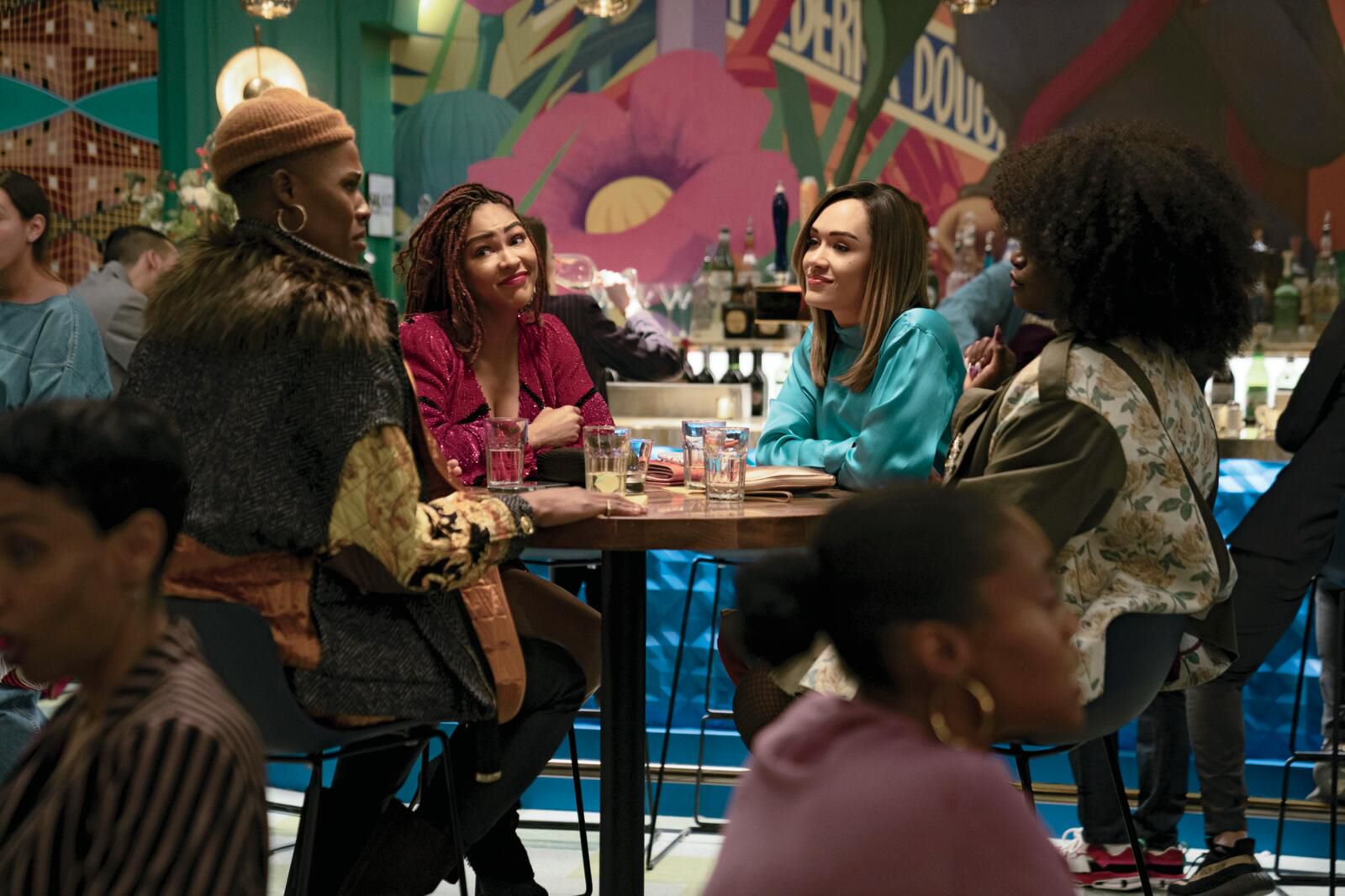
As the pen behind the comedic films Girls Trip, Little and BET+’s First Wives Club, Tracy Oliver is currently one of the primary screenwriters and producers opening doors for Black women in comedy. Now noted as the first Black woman screenwriter to gross more than $100 million at the box office, Oliver had to pave her own way to Hollywood success when big studios provided no path. Starting with her introduction to the industry—producing and writing for Issa Rae’s The Misadventures of Awkward Black Girl (and costarring as J’s work archenemy, Nina)—she’s been steadily creating platforms that depict Black women as quirky and fun—and centralize them in comedic roles.
“When Issa and I were doing it, there just weren’t any Black women on screen in comedy,” Oliver says. “That was the thing that drew us together in college. We were both just really silly Black girls who loved to laugh and make people laugh. We were thinking about how to make a living in TV and film, trying to portray Black women in a comedic light that’s not just the ‘sassy Black friend’ in the white-centered world.”

Like many creatives of color, she became accustomed to having the bankability of non-white characters doubted, and outright denied, by studios. Even after Awkward Black Girl organically became a cultural phenomenon, Oliver often heard the same old rhetoric when presenting scripts showcasing Black women in a lighthearted manner: White women are more palatable and, by extension, more profitable. But the success of the movie Girls Trip sank that excuse once and for all.
“I fought harder for Girls Trip than anything I’ve ever done in my life, because I weirdly knew I was meant to write it,” Oliver says. “I knew on some level we were ready and that there were audiences clamoring to see it.”
Much like her on-screen characters, Oliver’s personality instantly draws you in. She weaves personal anecdotes into conversation as if you’ve known her for ages, in much the same way that she crafts hilariously relatable stories on the page. “I wouldn’t be able to write if I didn’t maintain a real life, because so much of my writing comes from drunken shenanigans and silly situations with my friends,” she confesses.

Her upcoming series, Harlem, is set to capture more of that magic. The Amazon Prime comedy follows four thirtysomething women friends navigating life and love in the titular cultural hot spot. It’s a project Oliver has had tucked away for years. “I sent it to my agents and my manager, and they were like, ‘This is hilarious, but I don’t know if we can sell it,’” she recalls. “Then Girls Trip came out, and all of a sudden it was, ‘What else you got?’”
When developing Harlem, Oliver says she was heavily inspired by her love of shows like Living Single and Girlfriends. The golden age of Black sitcoms is what initially sparked her desire to become a comedy writer. “I am very much a child of the ’90s,” she admits. “It was a really poppin’ time for Black music, Black film, Black TV. I shouldn’t say this, but I feel a little sorry for the kids that were younger than me at the time and didn’t get to have that.”
Oliver was so inspired by the decade that she cast Jasmine Guy and Whoopi Goldberg, two of her personal comedy icons, in her new show. “I just fangirled all over them,” she recalls. “I was like, ‘You guys have no idea that I grew up on you, and I wouldn’t be where I am without either one of you.’ I wanted to give them their flowers. We’re standing on their shoulders, in a lot of ways. They started this.”

Now that Oliver is reaping the benefits of Hollywood’s recent realization that Black women bring in revenue, it’s her turn to take up the mantle and continue the work. One way she’ll do that is with the multiyear overall deal (reported to be in the heavy eight-figure range) that she recently signed with Apple for her company, Tracy Yvonne Productions, to create original series and feature films. She says of the deal, “I don’t know why I continue to be shocked by everything good that happens to me. I think it’s because for so long it just felt like certain things were unattainable for Black women—that I was like, Well, you just do it for the love.”
Those days of unattainability may finally be coming to a close. Her contract comes in queue with several other recent, major first-look and overall deals for talents like Misha Green, Regina Hall and Courtney Kemp. For Oliver, it’s a bittersweet victory. “I feel incredibly grateful and incredibly blessed to be a creator in this time, but it’s complicated,” she says. “I feel really conflicted about the generations of writers, directors, producers and actors of color who consistently had their work overlooked and were never given these opportunities. My mind always goes to the classics and the ’90s. When I think about what those actors and writers were doing, it was excellent. They showed the way.”
In turn, Oliver is now creating a pipeline for the next generation of creatives. “I’m looking at a lot of different opportunities,” she says. “Not only for myself, but also other writers of color, particularly women of color, in the comedy space. I think in a weird way, Awkward Black Girl paved the way for things like Girls Trip and paved the way for the Apple deal that I have—because we proved that Black women are not only worthy and talented, but they’re also profitable.”